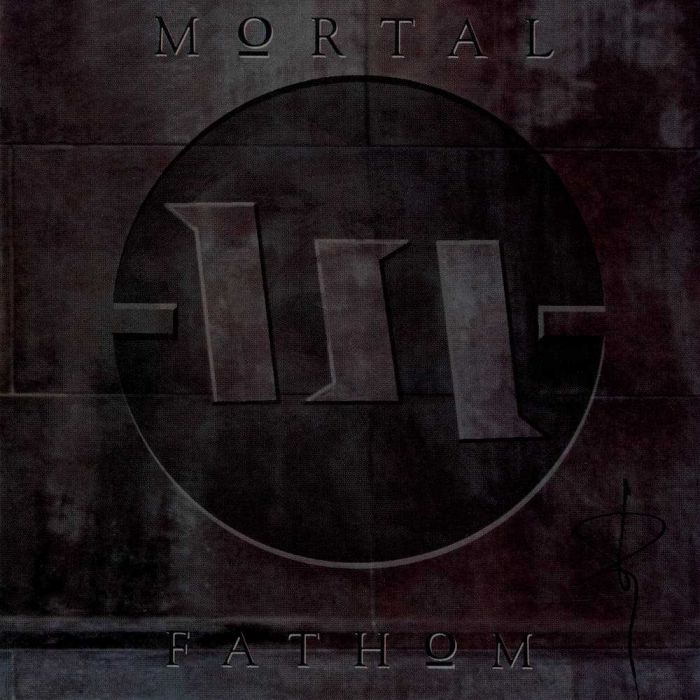10 Defining Albums, #5: Fathom by Mortal (Review)

In keeping with a recent Facebook meme, these are 10 albums, listed by artist in alphabetical order, that had a huge impact on me, changed the way I experienced music, expanded my horizons, and maybe even saved me. They’re not necessarily the best albums or even my favorite albums by the respective artists, though there’s some overlap. But without them, I wouldn’t be who I am today.
Back in high school, I listened to a lot of music that was generally lumped under the “alternative” label, e.g., The Cure, Depeche Mode, Joy Division, Dead Can Dance, Nine Inch Nails. I didn’t search out this stuff simply to be rebellious, but because these bands, with their more turbulent sounds and lyrics, just felt more honest and truthful to me during those crazy high school years. (Have I mentioned that I was a pretty angst-ridden kid?)
In other words, I naturally gravitated to “dark” music. (And for what it’s worth, that’s still the case.) But being a good church-going Christian kid, I was a little bummed that I couldn’t find Christian bands that were doing something similar. The Bible literally has a book called “Lamentations” and a good portion of the Psalms and the various prophets are devoted to wrestling with life’s dark side — so why couldn’t I find Christian bands who explored similar emotional territory?
I was complaining to my friend Daniel about crappy Christian music when he let me borrow Mortal’s sophomore album Fathom — and it was unlike anything I’d ever heard from Christians up until that point. Finally, high school me thought, Christians could make legitimate music that felt relevant, and not merely be a copy of whatever was cool in secular culture a decade ago. (In hindsight, this was pretty arrogant of me. There were, of course, numerous artists that had been making this sort of music for years, but little ol’ me was entirely ignorant of them at the time… and I’ve enjoyed discovering many of them over time.)
Mortal played music that blended industrial and metal with dance music (a mix they dubbed “hypersoul”). It was intense, atmospheric, aggressive… all the things I liked. As for the lyrics, I’d never heard a Christian write lyrics like those of GD La Villa, who went by the stage name of “Jyro.”
They were stirring, evocative, and even worshipful, but songs like “Ne Plus Ultra,” “Above & Beyond,” and “Godspeed” were unlike any worship songs I’d heard before. And they weren’t afraid to tackle other subject matter, be it abuse and neglect (“Rift”) or romantic longing (“Jil Sent Me”). My favorite track on Fathom was “Bright Wings,” which introduced me to the poetry of Gerard Manley Hopkins, but set to a hip-hop beat (which I later learned was a Beastie Boys sample). Oh, and all of the sci-fi movie samples — a staple of industrial music at the time — didn’t hurt either.
Mortal was the first band that showed me that Christian bands could hold their own — musically, aesthetically, lyrically — with secular artists. Or put another way, Mortal’s Fathom proved to me that Christians could make music that was aggressive, intense, and yes, even “dark” without sacrificing their spiritual convictions and beliefs.
